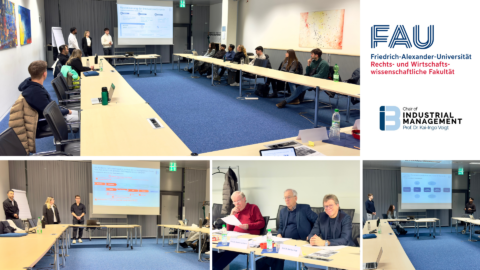Analyzing the semiconductor strategies of global economies in our seminar with Prof. Heinrich v. Pierer
Semiconductors are the lifeblood of the modern economy, powering the technologies that drive innovation, productivity, and connectivity across the globe. From smartphones and electric vehicles to advanced medical devices and critical infrastructure, semiconductors form the foundation of nearly every digital product and system. In recent years, it became evident that these tiny chips are critical to securing economic resilience, technological sovereignty, and global competitiveness. In the face of increasing demand for semiconductors, economies around the world have recognized that control over chip design, manufacturing and innovation is essential not only to maintaining industry but also to ensuring national security. As part of our 39th Praxisseminar with Prof. Heinrich v. Pierer, former Siemens CEO and currently CEO at Pierer Consulting, our talented students analyzed the semiconductor strategy of five national economies: Japan, South Korea, Germany, the US, and China.
This week, we kicked off the first of two presentation sessions and started the topic with Japan, South Korea, and Germany. Across all three presentations, one thing became evident: The semiconductor industry is inherently complex, incredibly intertwined, and highly political. It is one of the most challenging yet interesting industries in the world, that substantially decides the future of our economy.
Prof. Voigt and Michael Mertel extend their gratitude towards Prof. v. Pierer, Dr. Dörrie, and the participating student groups for their collaborative efforts and the fruitful discussion! We are already looking forward to our second presentation session next week on the strategy of the US and China! See you there
